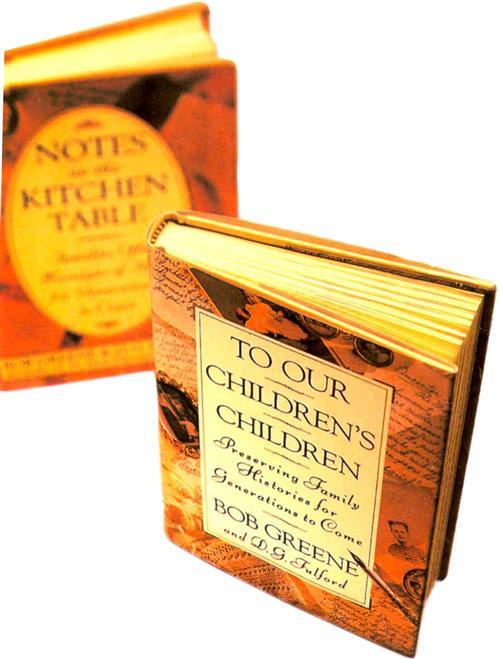Sign up for the Family Tree Newsletter Plus, you’ll receive our 10 Essential Genealogy Research Forms PDF as a special thank you!
Get Your Free Genealogy Forms
"*" indicates required fields

Remember the time your friend gave you a leather-bound journal for a special occasion? You always said you liked to write. Always meant to keep a journal. So your friend gave you a fancy one, with thick manila pages and your initials on the cover in gold. This beautiful gift — this empty, silent book — scared you half to death. Thick pages between leather covers deserve eloquent words, don’t they? The dark, cartoonish figure of your self-doubts is on one shoulder; the light, cartoonish figure of your hopes and wishes is on the other.
Your hopeful self says: “Write!”
Your doubting self says: “Write what? You think you can write? Your brain is a frozen pea!”
Your hopeful self says: “Put the pen to paper! You, too, have stories to tell!”
Your doubting self says: “Who wants to hear what you have to say?”
For some courageous reason you put the pen to the page and you write in your journal — you find you are welcomed and comforted there. You defy your doubting self — you kick the doubting self to the curb. He’s not even listening when you answer his question: Who wants to hear what 1 have to say?
I want to hear what I have to say. And to do so, I must put it on paper.
You take a moment and listen to those words you hear in your head — words that, like certain dog whistles, are inaudible to anyone else. You write how sometimes laundry is the only way you can make order out of chaos. You write words you don’t consider the language of legacy. You write words because it feels good to write them. You write about a phone call you had with a friend, and how different you felt after laughing. You write about the cleansing feeling of returning library books. You write about going to the cemetery on Father’s Day with grievous knowledge that this is what June has become.
You write about nothing and everything. You write about the neighborhood you truly live in: your rugged heart’s terrain.
These are the words that matter. Not broad brush strokes and overviews. Not the meaning of the millennium. The daily details you know so well. The living room. The life.
It gets easier as you go along with your journal. Some days you’d rather talk to a page than to a person. A question a day and you’re telling your story. A story a day and you’re telling your life.
You are giving your family the greatest gift they will ever have. You are thinking and remembering, reflecting and rejoicing; you are laughing and reliving; you are re-looking, gaining perspective and rediscovering pride. Simply by paying attention. Simply by writing it down.
We move too fast, we do too many things. Our lives are layered with activity and noise, with travel and errands, with events both glad and sorry. We’re stuck on fast forward with no one pushing pause. We miss what it tastes like — this life we’re living — how it connects, one day, one year, one decade to the next. We’re letting it get by us. And this is the one thing we have: this life.
Until we put it on the page.
Then we have it twice.
And we learn what a few minutes of contemplation can do. Time to sit, to write what happened, to close tonight and to open tomorrow.
The buck stops here. You’re the only one to tell your story.
Tell it to your loved ones or tell it to yourself. Look. Listen. Savor. Dissect. Capture the transience of the moment before it drifts like chiffon in an evening breeze, down the alley and away.
ADVERTISEMENT

